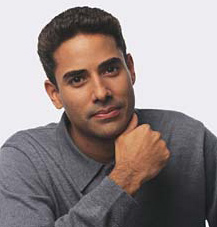WSJ.com: Call them serial-preneurs. While some entrepreneurs struggle their whole lives to bring one idea or product to market, there’s another breed: those who do it once, twice or three times more, disproving the notion of beginner’s luck. In some cases, the brands and people are household names, such as Steve Jobs with Apple, Pixar and NeXT. But the ranks also are populated with lesser-known entrepreneurs who fly under the radar, hitting one start-up home run after the other.
“I really believe that some people are kind of entrepreneurial adrenaline freaks,” says Wayne Stewart, a management professor at Clemson University in Clemson, S.C. “They really get their kicks by starting businesses.”
In 2000, Mr. Stewart published a study with two other researchers looking for common traits among serial entrepreneurs — which he defined as those who had owned and operated three or more businesses. Of the 664 entrepreneurs studied, only 12% fit the bill. But those who did scored higher in all three categories examined: They had a higher propensity for risk, innovation and achievement. They were less scared of failure. And they were more able to recover when they did fail.
The Secrets of Serial Success [WSJ.com]
Category: Entrepreneurship

9. You are anti-authoritarian. You can’t fathom the thought of being anything less than Boss, President, Chairman, Don, and/or Emperor.
8. You have the uncanny ability to get other people to do all the work.
7. You are always looking for and/or seeing economic opportunity everywhere and in everything. While at a concert, you occupy yourself by estimating the evening’s take and its gross margins instead of listening to the music.
6. You spend more time and energy looking for easier, faster, cheaper, more effective ways of accomplishing something than if you just did the task outright.
5. You would enthusiastically trade a life-time pass to Disneyland for one ride in the Vomit Comet. In other words, you would give up a secure, even-keeled, bland existence for a life that whipsaws uncontrollably between exhilaration and terror.
4. You don’t see lack of money, lack of knowledge, and lack of experience as barriers to entry. You are also not deterred by the existence of formidable competition.
3. You favor multiplication over addition and you lull yourself to sleep by calculating price-earnings ratios.
2. You would happily invest your home’s equity and your life savings (and your mother’s life savings) in your start-up.
And the Number One sign you are made to be an entrepreneur . . .
1. When you project future earnings, your spread sheet shows that by Year 5, you can buy Argentina and sell it to Brazil.
Top 10 Signs You’re Made to be an Entrepreneur [Lazy Way]
Start With The Spark
 Cobalt Paladin: The most important thing for the entrepreneurial spark to start is to have a unique idea which you passionately believe in. You do it because you believe in it; because it’ll be able to help people. Least of your goals should be making money. Making money is good but it cannot be the ultimate and only goal. The problem with using making money as THE goal is when you don’t make enough, you lose heart very quickly and it won’t sustain your motivation and passion; when you’ve made enough, there will be just a sense of emptiness because you’ll be asking yourself what’s next and is that all?
Cobalt Paladin: The most important thing for the entrepreneurial spark to start is to have a unique idea which you passionately believe in. You do it because you believe in it; because it’ll be able to help people. Least of your goals should be making money. Making money is good but it cannot be the ultimate and only goal. The problem with using making money as THE goal is when you don’t make enough, you lose heart very quickly and it won’t sustain your motivation and passion; when you’ve made enough, there will be just a sense of emptiness because you’ll be asking yourself what’s next and is that all?
The idea is usually inspired from daily experiences. It usually is just a way to solve a common recurring problem. It can even be a new way of solving the same problem. For me, I believe the idea has to be new, unique and useful. If the idea is not different, how do you expect your new venture to stake a position in the user’s mind. If your idea is not new, not different and better, why would anyone remember or use it. They would be using what is already currently available. Till date, there is still only one Cola!
The Art Of The Start: Part 1 [Cobalt Paladin]
Survival Instincts

YoungEntrepreneur.com: Most entrepreneurs who start a business will fail. The statistics vary but as many as 80% of people who start a business today will no longer have their company in 5 years. That is a pretty big failure rate.
According to the Body Shop founder, Anita Roddick:
“I started The Body Shop in 1976 simply to create a livelihood for myself and my two daughters, while my husband, Gordon, was trekking across the Americas. I had no training or experience and my only business acumen was Gordon’s advice to take sales of £300 a week. Nobody talks of entrepreneurship as survival, but that’s exactly what it is and what nurtures creative thinking.”
What many new business owners fail to recognize is that entrepreneurship is first about survival, then about building a company. I have seen too many entrepreneurs to count who have grand visions of where they want to go but never even get to first base. They close down shop before they can execute any of their big plans because they run out of money.
If you cannot make enough to pay your basic bills then you will not be around in the long run to fulfill your dream. It takes a lot longer to get a company off the ground that most people think and in the beginning it is all about survival – do whatever you need to do to keep yourself, and your company, going.
Entrepreneurship Is About Survival [YoungEntrepreneur.com]
Growing A Winning Company

Found+READ: As I have discovered in my years as an entrepreneur and during the past ten years leading TIBCO Software, scaling a company requires both the discipline to follow sound strategic processes and the courage to take bold, yet calculated, risks. If you are too aggressive, your company might make imprudent choices and go out of business. If you are too slow or cautious, you might miss an opportunity. Take, for example, a champion downhill skier: if he goes too fast down the slope, he risks crashing and burning. Too slow and he might lose the race. It’s all about striking the right balance. Following are four fundamentals that founders should consider in their quest to finish first:
1. Find, and foster, top talent. Mediocrity doesn’t win Olympic medals, nor will it result in a winning company. But while hiring outstanding, dedicated people should be a given for any company founder, it is equally important to create an open environment within the organization that allows top talent to flourish.
2. Wow the crowd. Never forget that happy customers are an asset far more valuable than simply the revenue they generate. Satisfied customers are your organization’s most credible supporters – more powerful influencers than any advertisement, white paper or marketing strategy alone will ever be.
3. Know when to take short cuts. Building a company with staying power is frequently sought after yet rarely achieved. Taking short cuts can be tempting, especially when the competition is fierce, but know that not all short cuts are created equal.
4. When you see your opening, move quickly. Great companies cannot be built on process alone. As we all know, antiquated, disconnected or bureaucratic organizational procedures can stifle innovation and slow progress to a crawl. If the right decision-making infrastructure is in place, your team should feel confident enough to move quickly – even in chaotic environments – and go out and dominate a market segment.
Talent, Wow!-factor, Speed & Short-Cuts [Found+READ]